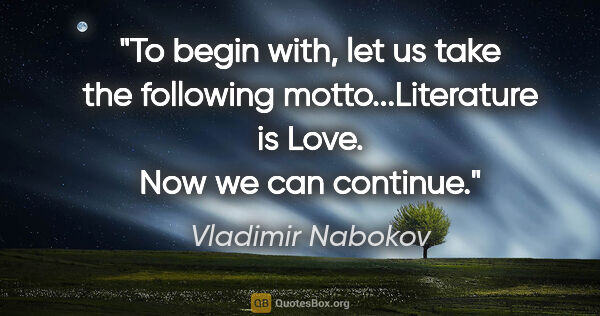Let Us Quotes (page 32)
Would to Heaven we had never approached them at all, but had run back at top speed out of that blasphemous tunnel with the greasily smooth floors and the degenerate murals aping and mocking the things they had superseded-run back, before we had seen what we did see, and before our minds were burned with something which will never let us breathe easily again!
H. P. Lovecraft
Well, I think I laid down my sunshade first,'said Mrs. Twining reflectively. 'Ah, that doesn't interest you. I told Finch that I wanted to tidy my hair (a euphemism for "powder my nose", of course), and would show myself out on to the terrace.'
'And you did in fact powder your nose, Mrs. Twining, at the mirror over the fireplace?'
'Most thoroughly,' she agreed.
'How long did that take you?'
She looked rather amused. 'When a woman powders her nose, Inspector, she loses count of time. My...
Georgette Heyer
I stand four-square for reason, and object to what seems to me to be irrationality, whatever the source. If you are on my side in this, I must warn you that the army of the night has the advantage of overwhelming numbers, and, by its very nature, is immune to reason, so that it is entirely unlikely that you and I can win out. We will always remain a tiny and probably hopeless minority, but let us never tire of presenting our view, and of fighting the good fight for the right.
Isaac Asimov
If this is the price to be paid for an idea, then let us pay. There is no need of being troubled about it, afraid, or ashamed. This is the time to boldly say, “Yes, I believe in the displacement of this system of injustice by a just one; I believe in the end of starvation, exposure, and the crimes caused by them; I believe in the human soul regnant over all laws which man has made or will make; I believe there is no peace now, and there will never be peace, so long as one rules over another;...
Voltairine de Cleyre
Finding it so directly on the threshold of our narrative, which is now about to issue from that inauspicious portal, we could hardly do otherwise than pluck one of its flowers and present it to the reader. It may serve, let us hope, to symbolize some sweet moral blossom, that may be found along the track, or relieve the darkening close of a tale of human frailty and sorrow.
Nathaniel Hawthorne




